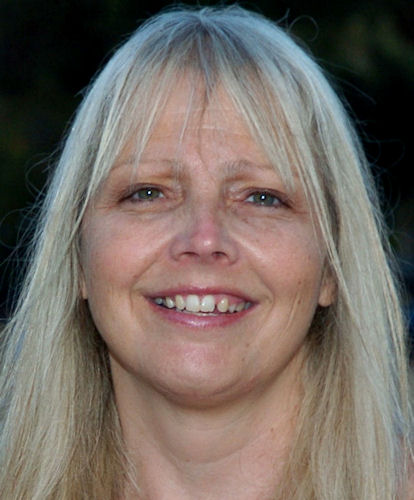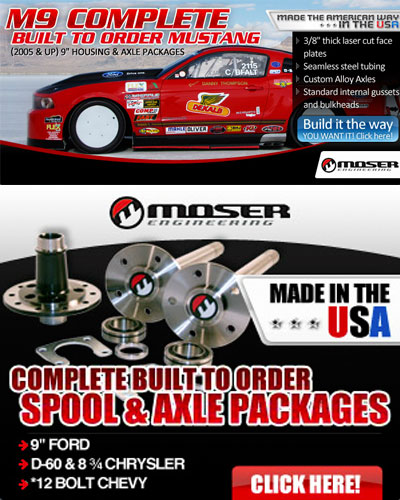SUSAN WADE: PACIFIC RACEWAYS – AND MAYBE ITS HISTORY – ON AUCTION BLOCK

Jason Fiorito, president of Pacific Raceways, has come up with a master plan to develop his family's 320-acre multiuse property southeast of Seattle into an "automotive and design technology campus" with global reach.
It’s his one idea that has gained traction after several scrapped projects since he took over management of the facility from Jim Rockstad in January 2002. It’s a clever, relevant, and even economically and environmentally beneficial proposal, with its mission to bring together high-tech and automotive companies for advancements in the renewable-energy-vehicle industry and other “green” initiatives.
But it casts uncertainty on the future of National Hot Rod Association drag racing in the Pacific Northwest.

Jason Fiorito, president of Pacific Raceways, has come up with a master plan to develop his family's 320-acre multiuse property southeast of Seattle into an "automotive and design technology campus" with global reach.
It’s his one idea that has gained traction after several scrapped projects since he took over management of the facility from Jim Rockstad in January 2002. It’s a clever, relevant, and even economically and environmentally beneficial proposal, with its mission to bring together high-tech and automotive companies for advancements in the renewable-energy-vehicle industry and other “green” initiatives.
But it casts uncertainty on the future of National Hot Rod Association drag racing in the Pacific Northwest.
Fiorito announced the picturesque venue in the fir trees with a peek-a-boo view of Mount Rainier – which also features a 2.25-mile road course with various elevations and motocross and karting tracks – is for sale.
He said his asking price is undetermined. The cost to drag racing could be great.
In a brief interview broadcast Wednesday with Seattle NBC-TV affiliate KING, Fiorito indicated that terms of a sale will include the assurance that racing will continue. However, with no clear buyer so far, it’s premature both to panic about drag racing possibly leaving after 27 consecutive summers of the Northwest Nationals and to assume a new property owner will share Fiorito’s vision.
What is clear is that Fiorito’s proposal has outgrown his family’s pocketbook.
"After 54 years of ownership, we recognize that we have taken the project as far as we could," he said in a statement last month.
"We have worked tirelessly with King County to set the stage for the next phase of redevelopment that includes the commercial development of property surrounding the racing and testing facilities. The development of projects of this size and scope require a level of resources that the family simply does not have,” Fiorito said. “After exploring options that would have allowed continued ownership interest, we centered on the route that would provide our customers and the region with what they deserve: a first-class racing operation paired with a job-creating tech campus attracting global leaders in the automotive innovation industry."
He said the project, called Pacific Innovation Center, “will create hundreds of clean-tech jobs and produce accelerated automotive innovation, while establishing Washington State as the international hub in this arena."
The development calls for 1.2 million square feet of commercial space for technology-based and racing-related industry.
Fiorito spoke with Competition Plus at the 2013 U.S. Nationals at Indianapolis, outlining this latest attempt to maximize commercial value at Pacific Raceways. He suggested several companies that either were interested in becoming partners or were targeted firms/industries. Since then, Fiorito scored a major breakthrough, gaining King County legislative approval for the current master plan. For years, and even when Rockstad managed the property that was known then as Seattle International Raceway, King County officials were uncooperative on a number of proposals.
Moreover, this past April, Fiorito’s Pacific Innovation Center received the Washington State Department of Commerce's designation as a “Project of Statewide Significance.” Only two other projects in state history have been so classified: Boeing's 777 composite-wing initiative at Everett, north of Seattle, and BMW's composite body manufacturing facility at Moses Lake, in central Washington.
The NHRA has loved the facility, certainly not for its cosmetic appeal but for its strategic location. NASCAR, active in the Northwest with its touring division, failed in three attempts to earn support for a brand-new Sprint Cup Series facility that would have provided a splendid base for a possible Pacific Rim initiative. Open-wheel racing used to visit both Portland, Ore., and Vancouver, British Columbia, but today’s IndyCar Series has chosen even foreign venues, Japan and Brazil (as well as Toronto, in eastern Canada), over the Pacific Northwest.
And that is why the NHRA has tolerated the empty promises Fiorito has made regarding needed improvements for the past 13 years and the under-developed conditions that have been less than fan- and racer-friendly.
Geno Effler, NHRA senior vice-president of public relations and communications, said, "We're still hopeful that we'll keep that event on our schedule. The Northwest is a great market. Of the major motorsports series, we're the only one that races in the Northwest. If it’s not the most picturesque track on the NHRA Mello Yello Series, it certainly is one of the top three. And we'd love to see that facility bought by somebody who wants to keep the strip open."
That depends on what interested parties contact the companies that are handling sale negotiations. Those California-headquartered companies are CBRE, a Fortune 500-listed commercial real estate services and investment firm, and Corporate Financial Associates, an investment banking firm that specializes in serving middle-market companies.
“We have contracted with CBRE and CFA (Corporate Finance Associates) to market the opportunity to a local, national, and international list of prospects," Fiorito said. "We are looking for the right buyer that will come in, take over, and realize the vision held by three generations of my family. We are interested in working with the new buyer(s), if they so desire, to provide management and consulting services to help with the transition and continued operation.
"The property is being offered without a list price. We will entertain any offer and envision discussions and, ultimately, negotiations that establish a market price," he said.
Fiorito virtually conceded that the racetrack is a losing proposition: "It is no secret that operating the racing business has been taxing on my family’s resources. We have fed the operation for 12-plus years now. Early on, it became apparent that developing the commercial real estate would be necessary to ensure long-term viability.
"It took over a decade to craft and have passed legislation at King County that entitled the property’s ability to move forward. Now that the legislation is passed and the State of Washington has designated our project as one of 'Project of Statewide Significance,' the financial outlook for the property is extremely favorable,” he said. “As stated before, it just takes a level of financial resources to develop that we simply don’t have.
"We are very confident that the upgrades and improvements will greatly accelerate with new ownership. One of the main reasons for the sale is the realization that we just don’t have the resources to redevelop the property quickly enough. We believe it is our responsibility to pass the torch to someone that does," Fiorito said.
While he allayed fears that the family intended to sell the land to developers for single- or multi-family housing units, he didn’t mention drag racing as a priority. Instead, he did mention road racing, which has been his family’s fondness through the years.
Said Fiorito, "The property is zoned 'industrial' and has legislation that will allow the commercial development of a certain portion of the race track surrounding real estate. Reverting the property back to residential would generally be considered a down-zone and wouldn't realize the return on investment. Economics dictate that the continued operation of the racing business in partnership with developing the commercial real estate is the highest and best use of the property."
Perhaps telling, perhaps not is the fact he referred to "a world-class racing facility," but spoke only of road racing. None of his remarks in his announcement recognized drag racing. Fiorito said, “Everyone who has supported my family, and the project, deserves us doing whatever it takes to make good on our promises to provide the region with a world-class racing facility capable of re-attracting professional road racing and the job-creating, innovation-accelerating tech campus planned for the surrounding property."
That doesn’t mean he’s snubbing the straightline sport, but it didn’t offer rousing reassurance that the NHRA will have a long-term presence at this site.
How quickly the property draws interest and from what sources remains to be seen. NHRA President Tom Compton, Executive Vice-President Peter Clifford, and Senior Vice-President of Racing Operations Graham Light were aware of Fiorito's plans. But they, like everyone else, must wait until some qualified potential buyers emerge. Until then, any notions about the future of the property simply would be speculation.
But Effler said the NHRA’s collective position, naturally, is one of encouragement and certainly of hope that NHRA drag racing will continue on the site.
Effler said Fiorito did not specify or imply whether the sale of the property is contingent upon racing continuing there.
"He has not indicated that to us. I don’t know if he has indicated that or will indicate that to anybody he's selling the property to," Effler said. "The event is on our schedule for 2015, for August. I don't know the ramifications if it’s sold before then, if the new buyer still has an obligation to fulfill that contract." (He said the NHRA doesn’t reveal terms and lengths of agreements with its affiliated racetracks.)
Fiorito filled in Effler, who's new this year to the NHRA, about his plans. And Effler said the campus Fiorito envisioned included "electric-vehicle technology development, maybe even solar power, all kinds of other things that would be based there, given the high-tech industry that's already in Seattle. He saw it as all being automotive-related, because it would complement the dragstrip and the road course and the karting facility. The way he explained it was it would all complement one another."
Effler said the NHRA's stance is to "wish the Fiorito family the best and we hope that the track remains a part of the property's future, with the future buyer. We just have to move forward in the meantime with the assumption that next year's event will take place. We'll just have to wait and see what the new owner has to say. There's no guarantee with real estate that you're going to be selling it next week. Just because you want to sell it doesn’t mean you’re going to sell it right away."
He said "myriad options" could be in play as the sale unfolds and the leasing or renting process with companies who want to locate on campus develops. So the NHRA, like its fans, will have to wait and see.
It's unknown whether a new property owner would be simply a landlord to tech-related companies that would anchor the campus or would be one of the partner firms in this venture. So it’s unknown how the new owner might regard the dragstrip or any of the other motorsports venues on the site.
The sudden availability of the property might generate renewed interest from NASCAR, which had tried and failed with the short-sighted Washington State Legislature at least twice in the past couple of years. (Effler, for the record, said the NHRA has no Pacific Rim aspirations: "not at the present time, no.")
Perhaps the International Hot Rod Association, which expanded its schedule for next season to include a stop at Spokane, might be interested. The IHRA's parent company, IRG Sports + Entertainment, owns racing complexes at Jupiter, Fla., Memphis, and Tucson. Incidentally, Chris McMahan, newly named corporate director of track development, briefly was Fiorito's general manager at Pacific Raceways.
The facility’s shortcomings are a moot point at this point. Former racer Whit Bazemore, during the Rockstad years, used an ESPN broadcast to declare it “a national disgrace,” but fellow Funny Car driver Ron Capps shrugged off the warts, saying he rather enjoyed the idiosyncrasies of quirky places such as Pacific Raceways.
No matter what anyone thought or thinks of the Pacific Raceways dragstrip, it is undeniably one of the sport’s historical sites, one that gave rise to such notable racers as Gary Beck, Jerry Ruth, Ed “The Ace” McCulloch, Herm Petersen, Gordy Bonin, Rob Bruins, Gaines Markley, and Bob Gilbertson, among others. It’s famous for its 64 Funny Cars event and the wild and wildly successful promoter, Bill Doner. It has held its own, going head-to-head on the calendar for many years with Seattle’s beloved Seafair festival that centers on Unlimited Hydroplane races on nearby Lake Washington.
It’s not a blue-chip facility in many categories of evaluation. Whether it’s a blue-chip piece of real estate is unknown right now. But Fiorito said, “I'm really pleased to offer this historic property with all of its advantages.” The advantage for him is financial and maybe a measure of satisfaction that ultimately he contributed in a meaningful way to the automotive industry: a “greening of racing,” perhaps, or technical breakthroughs that would ease America’s dependence on foreign oil. Time will tell.
How ironic that his best idea has priced him and his family off the land it has owned (and excavated) for decades. And how unfortunate it would be if all the amazing mechanical minds in NHRA drag racing were excluded from this ambitious initiative, that this August saw the last drag race at Pacific Raceways.
All articles and photography published in CompetitionPlus.com are protected by United States of America and International copyright laws unless mentioned otherwise. The content on this website is intended for the private use of the reader and may not be published or reposted in any form without the prior written consent of CompetitionPlus.com.




































